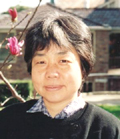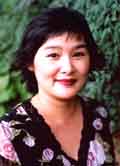
|
Carolyn Brewer is a lecturer in the Business School and Fellow of the Asia Research Centre, Murdoch University. Her primary research interests focus on the impact of religion in the construction of gender. As well as collaborating with Anne-Marie Medcalf in the editing of Researching the Fragments: Histories of Women in the Asian Context (Quezon City: New Day, 2001) and in the on-going editing, production and development of the Intersections electronic journal, Carolyn's publications include Holy Confrontation: Religion, Gender and Sexuality in the Philippines 1521-1685 (Manila: Institute of Women's Studies, 2001) and Shamanism, Catholicism and Gender Relations in Colonial Philippines, 1521-1685 (Aldershot and Burlington: Ashgate, 2004). Her new research project is exploring the Catholic/Muslim relations in the Philippines from the time of Magellan to the end of the Spanish period in 1898.
|










